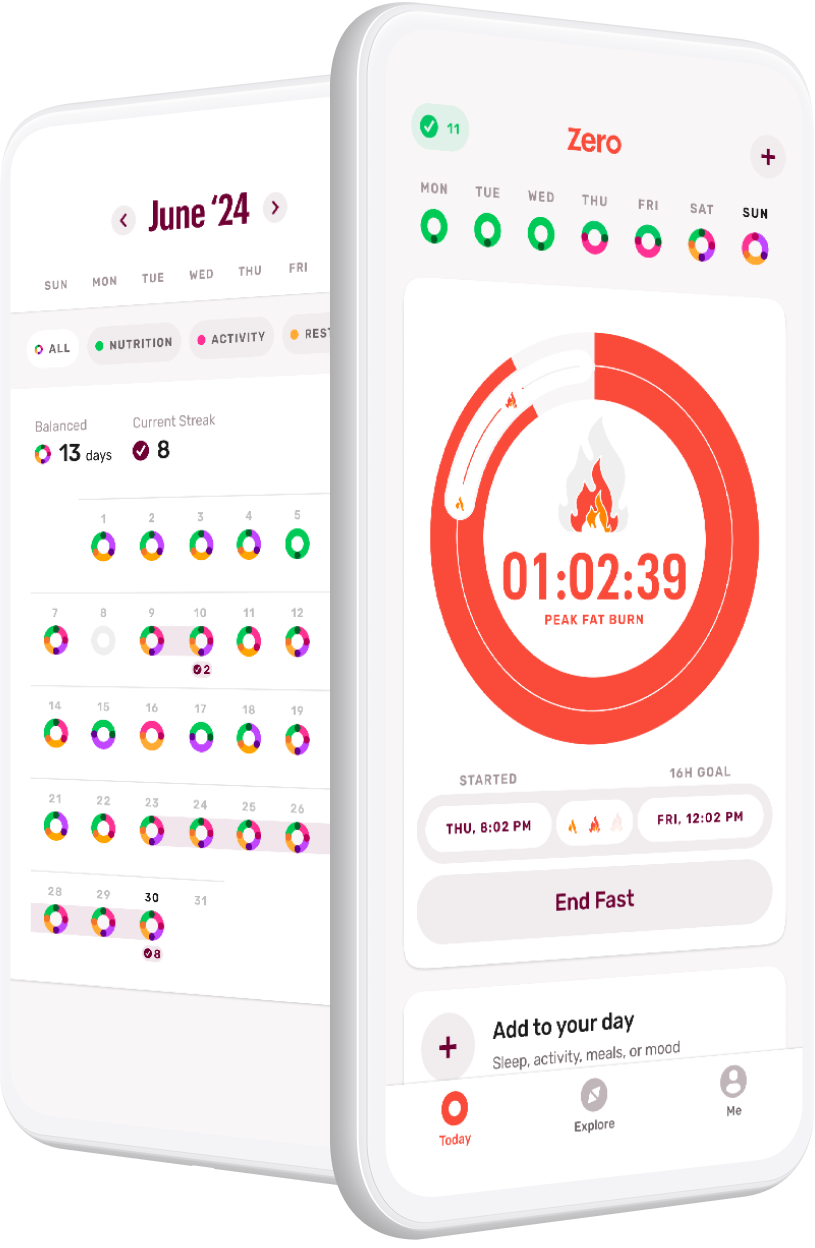Do side effects of fasting (headache, moodiness, etc) become more manageable over time?
Asked By: Cheyenne L.
Yes! In the beginning stages, fasting can certainly present challenges. The most common side effects of fasting are often the result of electrolyte deficiencies and can be easily remedied and prevented by staying hydrated and adding in a little electrolyte supplementation.
Some symptoms may include headaches, muscle cramps, and fatigue. Importantly, these experiences don’t discriminate against beginners; even seasoned fasters can feel their heat. But it’s important to note that it isn’t the fasting itself that’s at fault. Most of these can be remedied with an electrolyte supplement. When these types of discomfort aren’t after addressing electrolyte imbalances, they likely have more to do with your personal experience with fasting, and in this case, can become more manageable with time.
Your body is likely “re-learning” how to thrive in the fasted state, and how to efficiently shift from burning sugar to burning fat. With experience, you can improve your metabolic flexibility meaning you can better burn fat, turn that fat into ketones, and burn those ketones for fuel. But that metabolic “training” can take time!
Think of it this way – if you’re not a runner, it would be very difficult, and maybe impossible, to run a marathon on a whim without any practice. Just like our fitness improves with muscular adaptations to exercise, our metabolism undergoes changes and adaptations that make us better fasters with practice.
Headaches, fatigue, and overall discomfort while fasting may be a sign that your metabolism is experiencing some hiccups or delays in the transition to the fasted state and impaired fuel switching. In other words, you may be experiencing low glucose in the presence of low fat oxidation and low ketones, which ultimately means low total energy. Consequently, the brain and rest of the body may not receive the energy it needs to feel optimal. As your body gets better at burning fat for fuel, these symptoms should subside.
If symptoms do not improve over time, there may be other underlying issues and we recommend addressing these symptoms with a health care professional.
About the Author: Kristi Storoschuk
Kristi Storoschuk is a science communicator who focuses her research on ketogenic diets, metabolic therapies, and fasting for health optimization. She currently works alongside the world’s leading ketogenic researchers providing scientific education for the mainstream audience. She completed her Bachelor of Science (Honours) at the University of Guelph in Ontario, Canada. Outside of her research, she spends her time doing CrossFit and optimizing her health with an ancestral approach.
Download Zero on iOS and Android.
- Fasting Zones: What’s the Difference Between Anabolic and Catabolic? - December 19, 2023
- What’s the “Best” Fasting Regimen for Weight Loss? - March 6, 2023
- Can You Do a 16:8 Fast Every Day? - May 25, 2021

